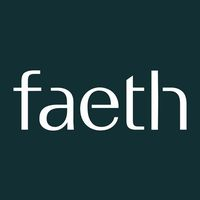Faeth Therapeutics Secures $25M to Propel Cancer Metabolism Therapies
October 21, 2025, 9:32 pm

Location: United States, California, Los Angeles
Employees: 51-200
Founded date: 2015
Faeth Therapeutics secured $25 million, raising its total capital to $92 million. This vital funding drives its lead PIKTOR program for endometrial cancer into Phase 2, following an impressive 80% response rate. It also expands the AI-driven MetabOS™ platform, supports a rectal cancer study, and initiates a rare pediatric metabolic disorder program for Hereditary Tyrosinemia Type 1 (HT1). Faeth pioneers metabolism-based cancer therapy, aiming to establish it as a core treatment pillar. The company leverages cutting-edge technology for precision medicine.
Austin, Texas-based Faeth Therapeutics recently announced a $25 million strategic financing round. This latest investment brings the clinical-stage biotechnology company’s total capital raised to $92 million. The funding solidifies Faeth's position as a leader in innovative cancer therapy.
S2G Investments spearheaded the financing. Existing investors like Khosla Ventures, Future Ventures, Digitalis Ventures, KdT Ventures, and Cantos demonstrated continued confidence. New investors B Capital Group, Avicella, and THO Seed Fund also joined the round. This broad support underscores the potential of Faeth’s metabolic approach.
The company plans to deploy these funds strategically. A primary focus is advancing its lead program, PIKTOR, in endometrial cancer. The financing supports the ongoing Phase 2 trial through a full data readout. That critical milestone is anticipated in Q3 2026.
Faeth's PIKTOR regimen combines serabelisib, sapanisertib, and paclitaxel. It achieved remarkable clinical success. A Phase 1b study for endometrial cancer demonstrated an 80% overall response rate. Patients also experienced an 11-month median progression-free survival. This significantly outperforms the historical three-to-four-month survival seen with chemotherapy alone.
These impressive results prompted further clinical development. The Gynecologic Oncology Group (GOG) Foundation has initiated a Phase 2 trial (GOG-3111; NCT06463028). Patients are actively enrolling in this pivotal study. A substudy within the trial investigates precision nutrition. It assesses how insulin control might enhance clinical outcomes.
A significant portion of the new capital will expand the company’s MetabOS™ platform. This proprietary AI-driven system is central to Faeth's drug development efforts. MetabOS™ integrates genomic, transcriptomic, and microenvironment data. It identifies and exploits tumor metabolic dependencies with unprecedented precision.
Faeth's therapeutic strategy targets the PI3K/AKT/mTOR signaling axis. This pathway is frequently altered in many solid tumors, including endometrial, breast, lung, and ovarian cancers. Unlike conventional single-node inhibitors, Faeth employs a selective multi-node inhibition approach. This strategy simultaneously targets PI3Kα, mTORC1, and mTORC2. It also controls the tumor’s nutrient supply.
This comprehensive yet selective blockade prevents feedback reactivation. It minimizes toxicity, addressing limitations of broader pan-pathway inhibitors. Preclinical models confirm the efficacy of Faeth’s selective multi-node inhibition. It achieved a more complete shutdown of the PI3K/AKT/mTOR pathway than single-agent inhibitors.
Beyond its oncology pipeline, Faeth is expanding its focus. The financing supports a Phase 1 study in locally advanced rectal cancer. Furthermore, it enables the initiation of a non-oncology program. This new venture addresses Hereditary Tyrosinemia Type 1 (HT1), a rare pediatric metabolic disorder. IND-enabling studies for HT1 are targeting Q4 2026 for clinical entry.
Faeth's MetabOS™ platform represents a foundational shift in therapeutic development. It recognizes cancer cells’ unique metabolic needs. Exploiting these needs can block tumor survival and adaptation. The HT1 program marks the platform’s first application outside oncology. It demonstrates MetabOS™’s ability to identify and address metabolic dependencies across diverse diseases.
Faeth Therapeutics was founded in 2019 by a team of distinguished researchers. These include Lewis Cantley, Siddhartha Mukherjee, Karen Vousden, Scott Lowe, and Greg Hannon. CEO Anand Parikh leads the company. Their collective expertise drives the company's pioneering vision.
The company views metabolism as a critical therapeutic discipline. It aims to establish it as the "fifth pillar" of cancer treatment. This vision places metabolism alongside established approaches: surgery, radiation, chemotherapy, and immunotherapy. Faeth’s innovative approach offers new hope in the fight against cancer and other metabolic diseases. The future of precision medicine looks increasingly metabolic.
Austin, Texas-based Faeth Therapeutics recently announced a $25 million strategic financing round. This latest investment brings the clinical-stage biotechnology company’s total capital raised to $92 million. The funding solidifies Faeth's position as a leader in innovative cancer therapy.
S2G Investments spearheaded the financing. Existing investors like Khosla Ventures, Future Ventures, Digitalis Ventures, KdT Ventures, and Cantos demonstrated continued confidence. New investors B Capital Group, Avicella, and THO Seed Fund also joined the round. This broad support underscores the potential of Faeth’s metabolic approach.
The company plans to deploy these funds strategically. A primary focus is advancing its lead program, PIKTOR, in endometrial cancer. The financing supports the ongoing Phase 2 trial through a full data readout. That critical milestone is anticipated in Q3 2026.
Faeth's PIKTOR regimen combines serabelisib, sapanisertib, and paclitaxel. It achieved remarkable clinical success. A Phase 1b study for endometrial cancer demonstrated an 80% overall response rate. Patients also experienced an 11-month median progression-free survival. This significantly outperforms the historical three-to-four-month survival seen with chemotherapy alone.
These impressive results prompted further clinical development. The Gynecologic Oncology Group (GOG) Foundation has initiated a Phase 2 trial (GOG-3111; NCT06463028). Patients are actively enrolling in this pivotal study. A substudy within the trial investigates precision nutrition. It assesses how insulin control might enhance clinical outcomes.
A significant portion of the new capital will expand the company’s MetabOS™ platform. This proprietary AI-driven system is central to Faeth's drug development efforts. MetabOS™ integrates genomic, transcriptomic, and microenvironment data. It identifies and exploits tumor metabolic dependencies with unprecedented precision.
Faeth's therapeutic strategy targets the PI3K/AKT/mTOR signaling axis. This pathway is frequently altered in many solid tumors, including endometrial, breast, lung, and ovarian cancers. Unlike conventional single-node inhibitors, Faeth employs a selective multi-node inhibition approach. This strategy simultaneously targets PI3Kα, mTORC1, and mTORC2. It also controls the tumor’s nutrient supply.
This comprehensive yet selective blockade prevents feedback reactivation. It minimizes toxicity, addressing limitations of broader pan-pathway inhibitors. Preclinical models confirm the efficacy of Faeth’s selective multi-node inhibition. It achieved a more complete shutdown of the PI3K/AKT/mTOR pathway than single-agent inhibitors.
Beyond its oncology pipeline, Faeth is expanding its focus. The financing supports a Phase 1 study in locally advanced rectal cancer. Furthermore, it enables the initiation of a non-oncology program. This new venture addresses Hereditary Tyrosinemia Type 1 (HT1), a rare pediatric metabolic disorder. IND-enabling studies for HT1 are targeting Q4 2026 for clinical entry.
Faeth's MetabOS™ platform represents a foundational shift in therapeutic development. It recognizes cancer cells’ unique metabolic needs. Exploiting these needs can block tumor survival and adaptation. The HT1 program marks the platform’s first application outside oncology. It demonstrates MetabOS™’s ability to identify and address metabolic dependencies across diverse diseases.
Faeth Therapeutics was founded in 2019 by a team of distinguished researchers. These include Lewis Cantley, Siddhartha Mukherjee, Karen Vousden, Scott Lowe, and Greg Hannon. CEO Anand Parikh leads the company. Their collective expertise drives the company's pioneering vision.
The company views metabolism as a critical therapeutic discipline. It aims to establish it as the "fifth pillar" of cancer treatment. This vision places metabolism alongside established approaches: surgery, radiation, chemotherapy, and immunotherapy. Faeth’s innovative approach offers new hope in the fight against cancer and other metabolic diseases. The future of precision medicine looks increasingly metabolic.


